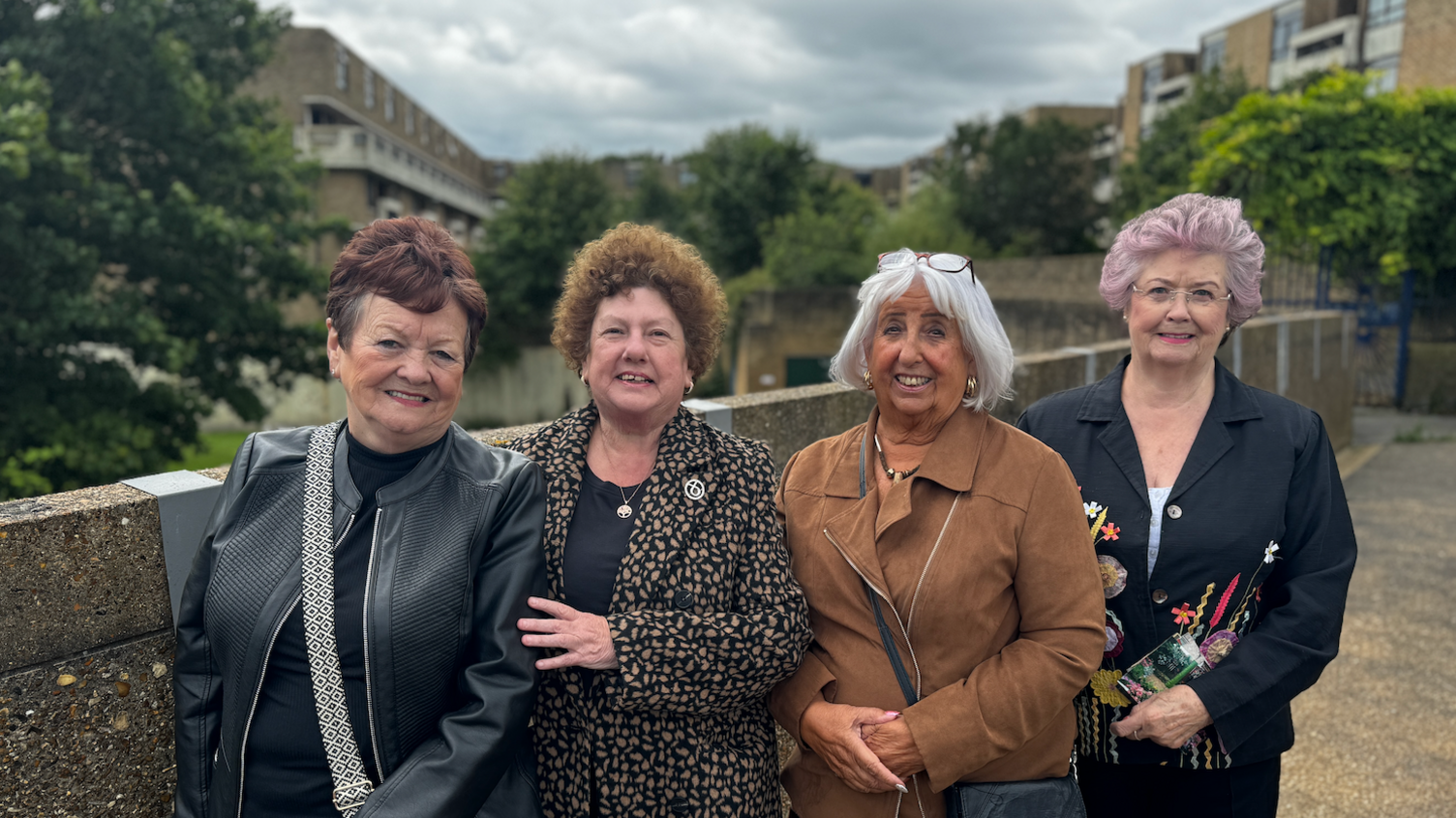Exhibition digs deep to uncover mining memories
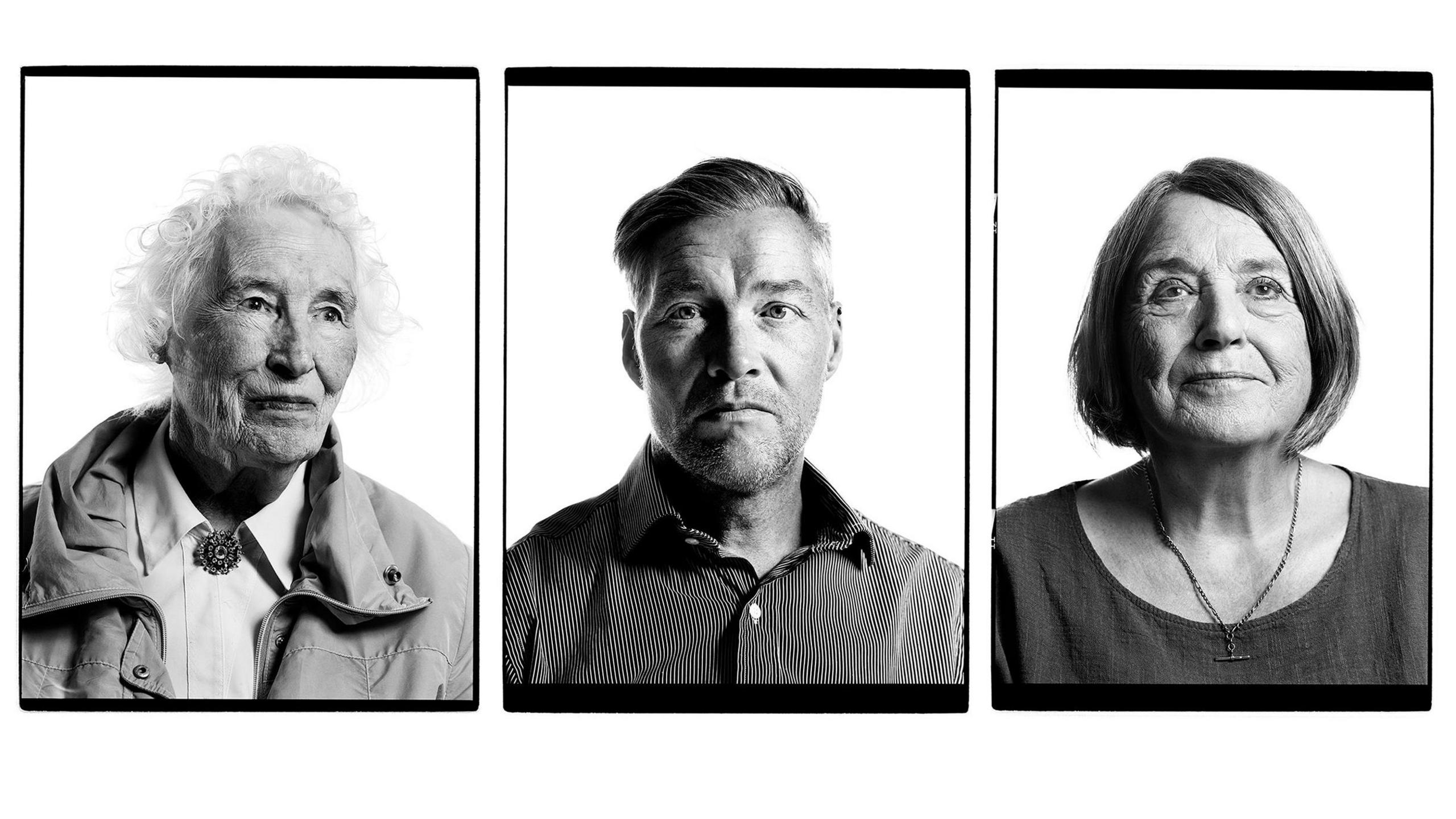
A total of 15 portraits are featured in the exhibition
- Published
Community connections to the long-gone mining industry are being explored in an exhibition combining photography and poetry.
Titled Coal Face: Washington, it includes a series of portraits of people whose families were involved with the pits in the north-east of England.
Organisers said participants were keen to "share and preserve their stories for younger generations".
The exhibition is running at Washington's F-Pit Museum until 28 September.
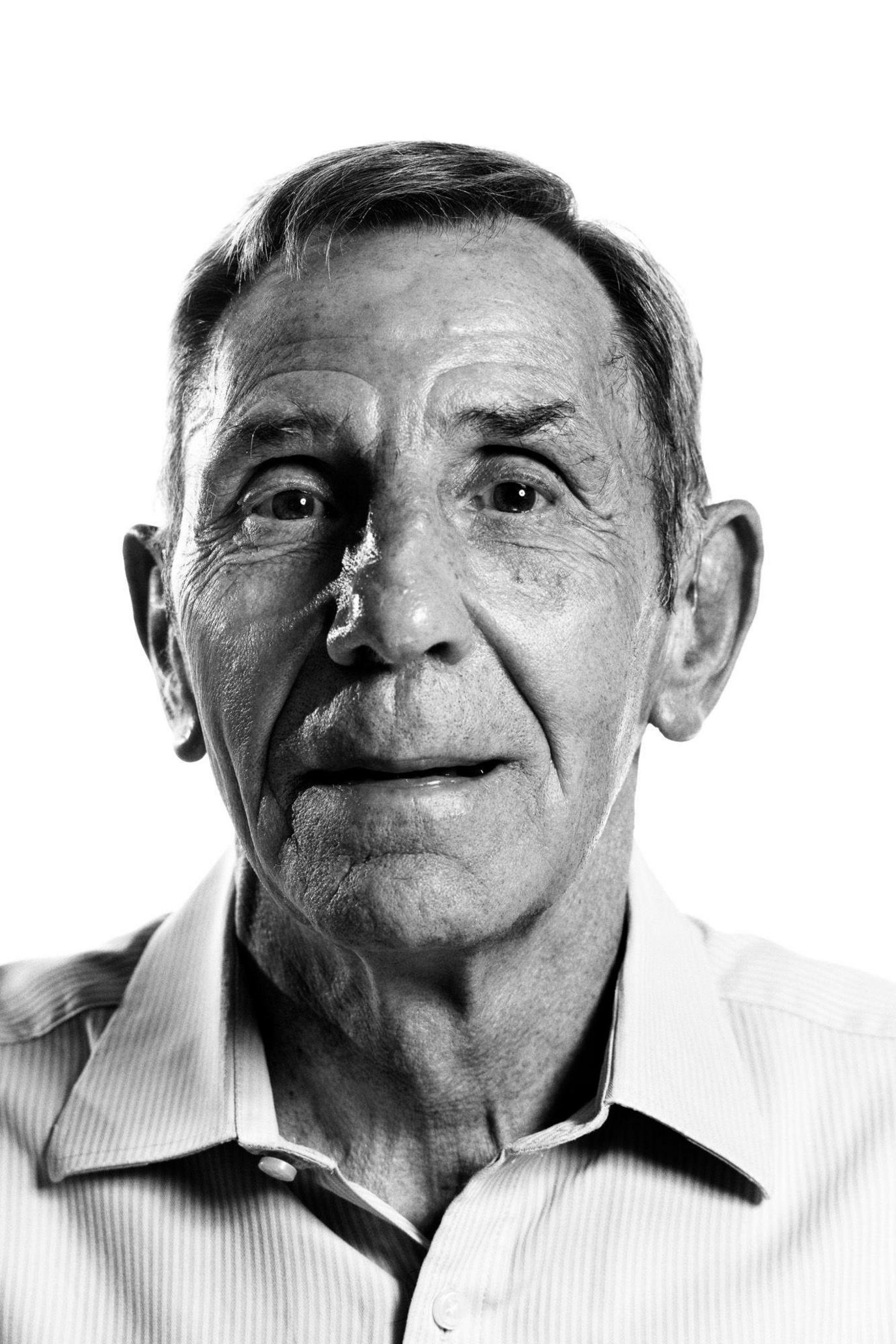
People taking part were interviewed about their memories and thoughts
The portraits were taken by photographer Andy Martin and are accompanied by poems written by Dr Louise Powell.
"Although it's now classed as part of Sunderland, Washington was previously in County Durham and so what's really interesting is the strong sense of identity with that area today," Dr Powell said.
"There was also a strong identification with Newcastle. Not to disregard Sunderland, but people seemed to have found a sense of greater excitement and possibility there.
"That's partly down to public transport links because it's traditionally been easier for people to get there from Washington."
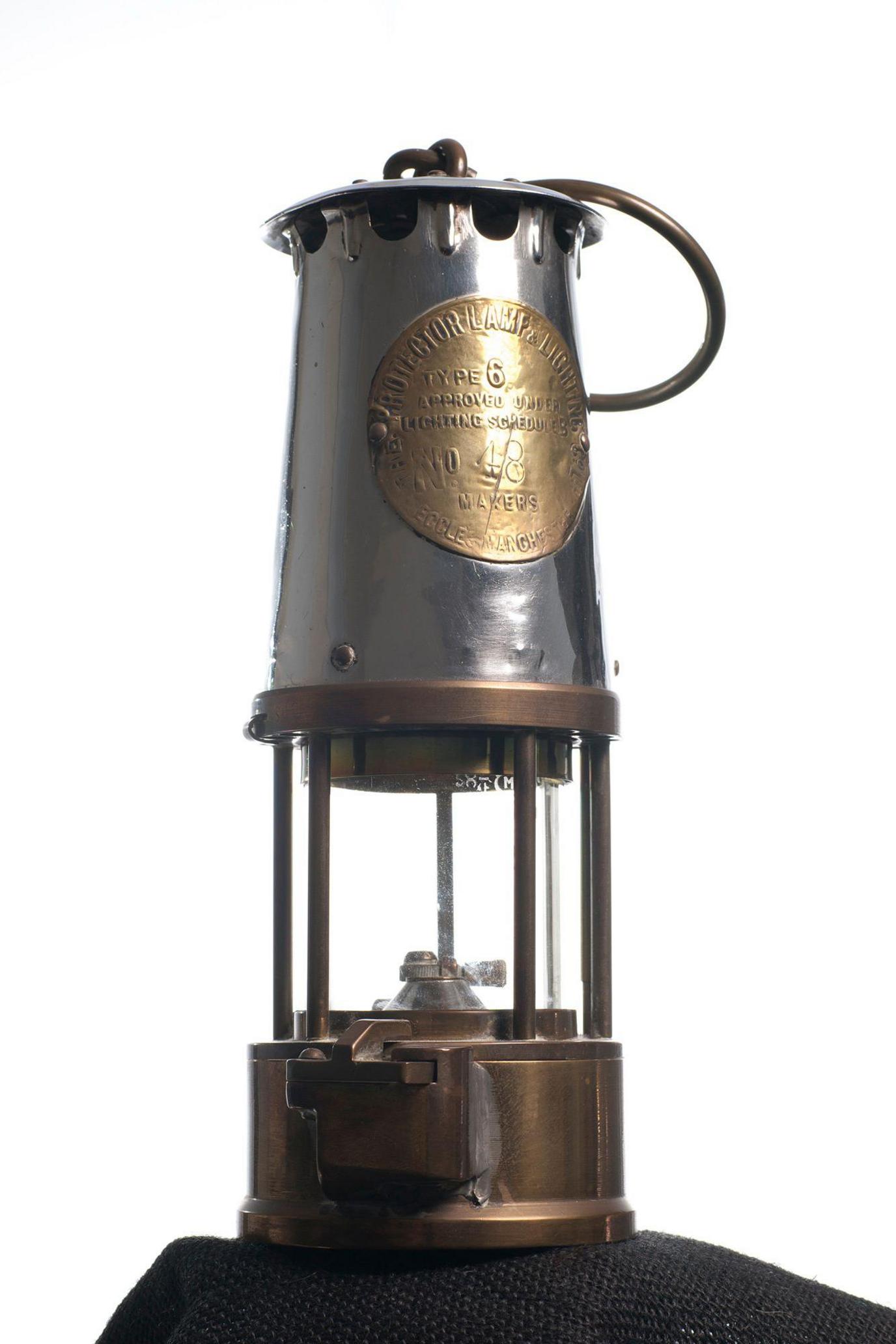
Items used by miners also feature alongside the portraits
The designation of Washington as a new town in 1964 saw 18 pit villages brought together.
At one time, Dr Powell said, each had "distinct dialect, although that's faded over time".
"The biggest feeling was a sense of pride and being so grateful to have a connection to the people who helped build the country," she explained.
"Without the mines, there wouldn’t have been an industrial revolution.
"There was also a sense of community having been forged underground and brought to the surface.
"It was moving to hear people talk about the scars they bear from the hard physical work."
While many participants described a "sense of loss", Dr Powell added for others the closure of the area's mines brought "a feeling that horizons had been broadened - going to university for example".
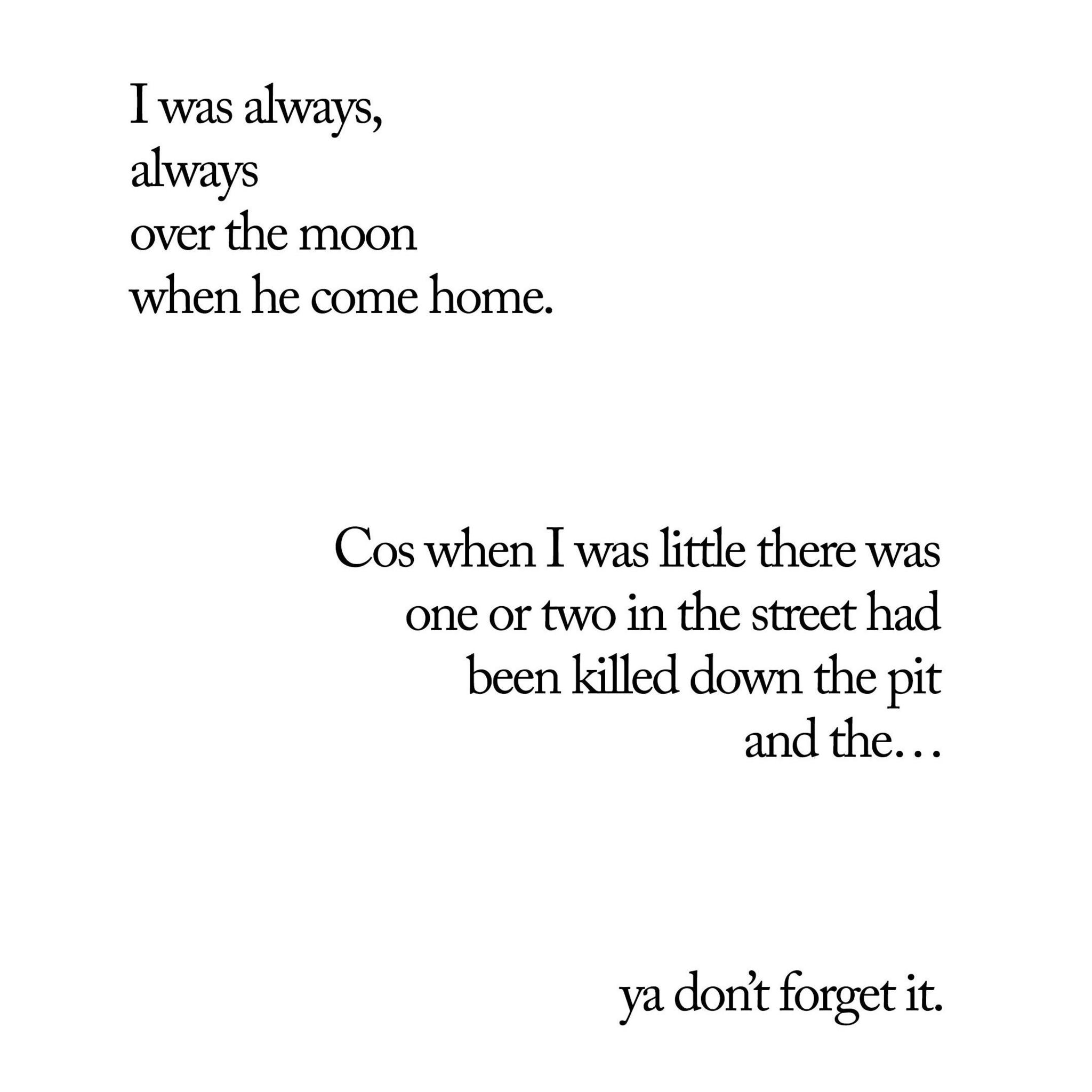
Participants' recollections have been turned into poems by Dr Louise Powell
A book and podcasts will also be produced alongside the exhibition.
A similar effort looking at Sunderland's mining heritage is due to get under way next month.
Follow BBC Sunderland on X, external, Facebook, external, Nextdoor and Instagram, external. Send your story ideas to northeastandcumbria@bbc.co.uk.
Related topics
Related stories
- Published6 September 2024
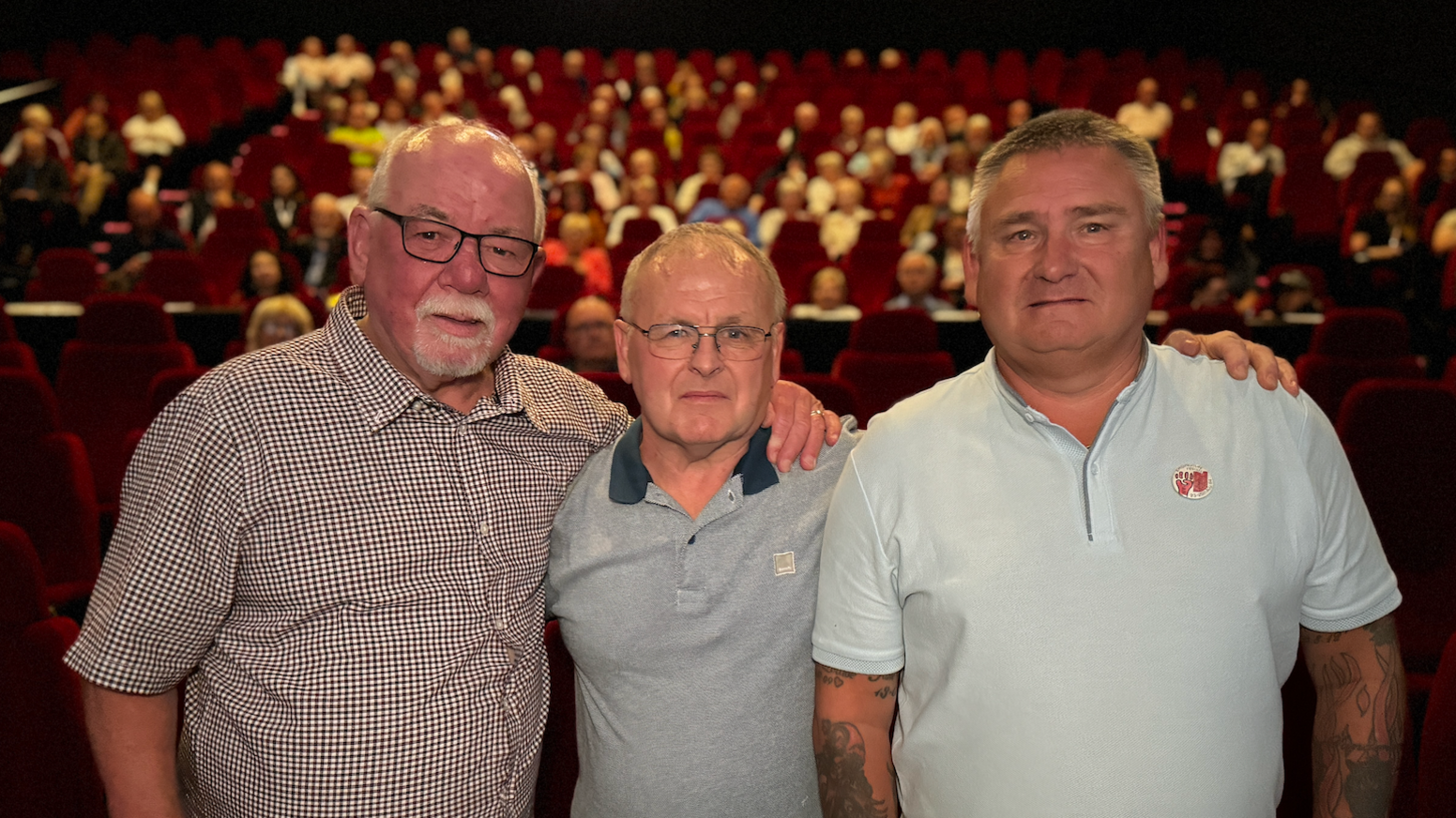
- Published19 July 2024
